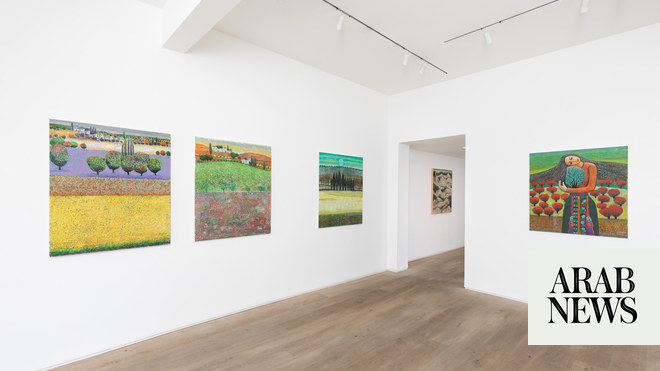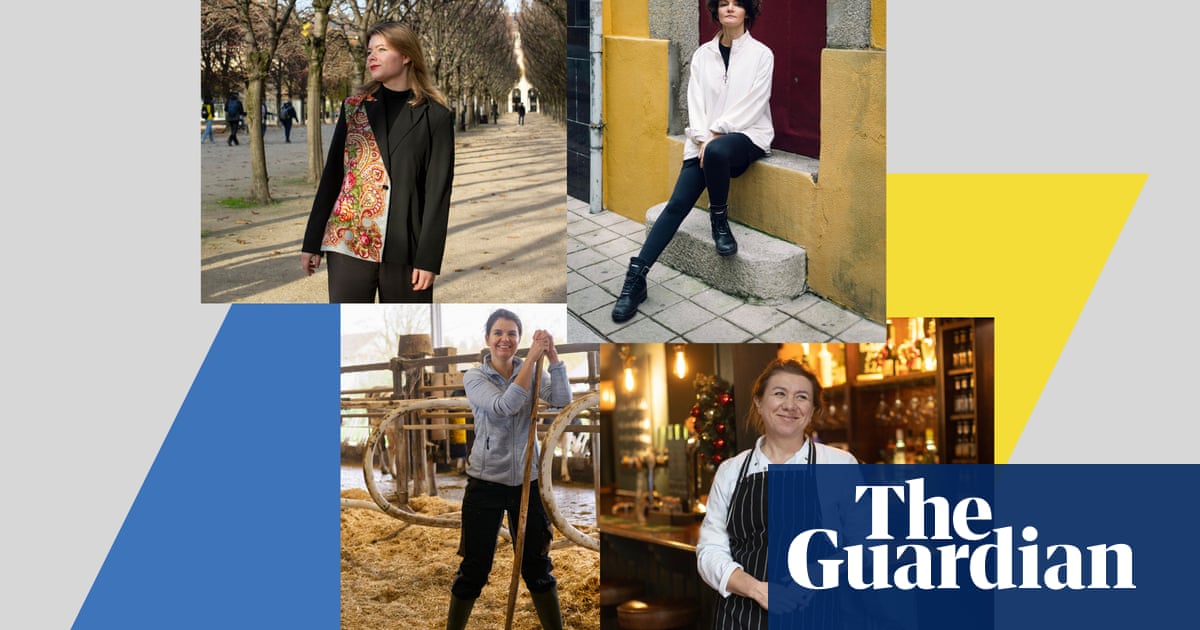
Anani incorporates local raw materials in mixed media paintings to boycott Israeli art supplies
80-year-old depicts vibrant vision of his homeland evoking fantasy and dreams
LONDON: Land and its loss has been central to molding Palestinian identity.
For the latest updates, follow us on Instagram @arabnews.lifestyle
And while many young people have only ever known a construct of “landscape” as the wounds of displacement, destruction and longing, the beauty of historic Palestine is preserved in the collective memory passed down through grandparents.
In this sense, Nabil Anani is a Palestinian grandfather to everyone around the world, whose paintings of his homeland have made their way onto gallery walls from New York to Tokyo.
His latest solo exhibition “The Land and I” on display in London’s Kristin Hjellegjerde Gallery, will run until April 27.
The 80-year-old artist, one of the founders of Palestine’s contemporary art movement, presents a vision of his homeland that evokes fantasy and dreams, with vibrant, geometric depictions of rolling hills and indigenous olive trees.
Anani was born in 1943, during a critical stage in Palestinian history. His childhood was shaped by the Nakba which saw Israel’s destruction of many cities, towns and villages.
The juxtaposition of his age and childlike illustrations conveys his emotional tether to what his land once was, a tether that transports observers with him through space and time.
The occupation greatly influenced his artistic style during the early years of his career, which took on a political and social nature.
“From the mid-eighties until the mid-nineties, my interest was to focus on the Palestinian identity by painting heritage and historical objects from ancient civilizations — from the Canaanites to the Islamic civilization,” Anani told Arab News
For this exhibition, in particular, Anani integrates folkloric motifs and colors of the Palestinian flag in his landscapes.
The artist’s collection, as well as his revolutionary spirit, are brought to life by his incorporation of organic materials from his garden such as straw, natural dyes and wood, resulting in distinctive textured surfaces.
During the first Intifada, Anani was a leader among an emerging group of creatives who boycotted Israeli and foreign art supplies. Instead, they relied on local materials such as leather, henna, turmeric, tea and indigo, he said.
In several of these mixed media works, “the figure of a woman appears within the landscape as an allegory of Palestine — the mother, the source of nourishment and shelter for her people,” according to notes from the gallery.
His 2022 painting “The Gem,” features a woman in an embroidered skirt with blossom-filled brown hair that extends across the top of the landscape. She holds a glowing turquoise orb that encompasses a tree silhouette.
Whether it is Anani’s strong sense of national pride or the purity of youthful innocence that shines through his paintings, the exhibition challenges the adult mind to imagine a better future. After all, the endurance of hope is what has fueled the Palestinian resistance over the last 75 years.












